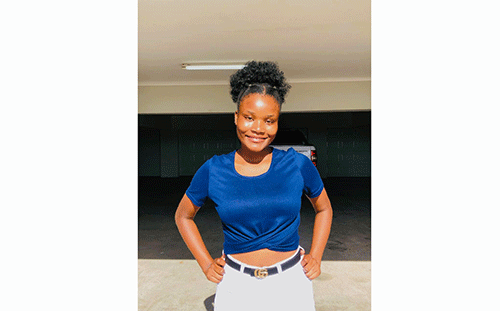Secilia PN Kandjungu
Namibian schools, both primary and secondary, have one thing in common; they both do not have proper guidance counsellors. Before you (my dear reader) start gathering your defence tools to fire back at me, I am not talking about the Life Skills teachers in our schools.
I am talking about guidance counsellors, qualified and properly trained individuals who should help the learners throughout their school journey, from helping them fit in on their first day in grade 1 to helping them apply for their dream university.
Individuals who help prepare learners for the challenges of the future by supporting their academic, career, personal as well as social development.
My dear reader, you might be pondering the question “just why in the world would a learner in grade 6 need a guidance counsellor?” As much as we try to hide this, our learners in primary schools are more exposed to technology and information. They develop faster, and so does their curiosity about themselves and the world around them.
Now, the moment this young learner is introduced to a guidance counsellor, they get to talk about such things that are going on in their lives and ultimately at home.
Guidance counsellors can also help the grade 7 learners apply for the high school that best suits their academic needs. They do this by sitting down with the learner, and going through all the potential schools to find the one best-suited for the learner. Many a times, the parents get so consumed by their work that they end up neglecting the learner. This is where the counsellors come swooping in and saving the day, kind of like Batman.
Another important role the guidance counsellor plays is helping the learners in their academics. The guidance counsellor, together with the teacher, should figure out if the learner has a problem with their academics. After identifying the problem, the guidance counsellor can now help the learner overcome that academic problem.
High school
Now, this right here is where the real danger is. It is during high school that learners begin transitioning from grades 7 to 8, from one physical and learning environment to a new one, and for some learners, it can be quite scary. But with the help of guidance counsellors, these learners will have no trouble adjusting to the new school environment. The learners will also be helped by the guidance counsellors when they are choosing their subjects; this is where most learners make mistakes. Instead of choosing subjects they know they can excel in, they choose the ones their friends are choosing, or worse the ones their older siblings had in high school, forgetting that they are not the same. With the help from guidance counsellors, learners will review all the subjects and choose the right ones for them, not based on other people’s judgements but on their own abilities. Ultimately, guidance counsellors also help learners when applying for university, ensuring that the learners choose the best university for their career choice.
At the end of the day, guidance counsellors are like fairy godmothers, of course without the pumpkin carriage, but they make the learners’ school journey stress-free and smooth. More importantly, they help learners in their psychological development. It is guidance counsellors who help shy learners break their bubbles and encourage them to start interacting with their peers. Guidance counsellors guide learners on their academic journey, and thus they are very important in the lives of learners, both in primary and secondary schools.


